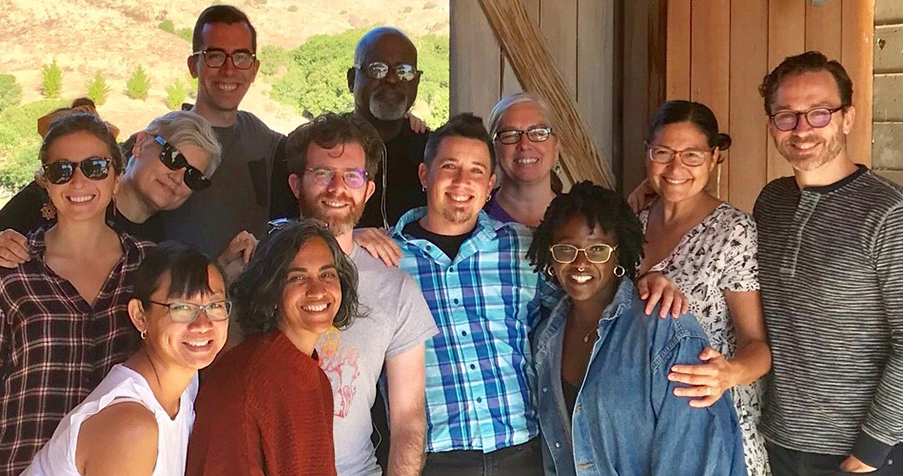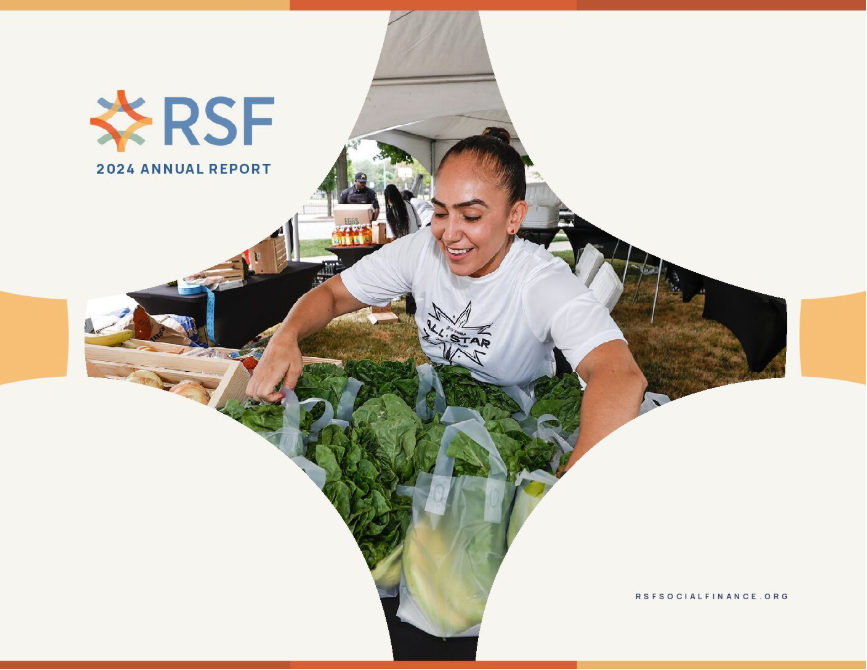RSF has been experimenting with participatory grantmaking for the past 8 years through our Shared Gifting program, which gives the decision for grant funding over to the grant recipients. In October 2018, we had the unique experience of having a donor invite us to facilitate a Shared Gifting Circle among our staff so that they may get to experience this unique grantmaking program. Six staff members volunteered to meet for a full day, share proposals highlighting the work they wanted to fund, and distribute a pool of funding amongst their projects. This week, RSF’s Stu Fram offered to share his experience.
I was curious to participate in the shared gifting process because it has always struck me as a potent means of testing and modeling an alternative way of moving money. And, as someone whose role at RSF involves identifying how to allocate capital—as opposed to asking for it—I thought the Circle would bridge an empathy gap of mine by experiencing the feelings of scarcity and competitiveness that inevitably accompany the process of trying to raise money. Additionally, I considered it an incredible opportunity to provide funding for a project that I’m deeply passionate about, Shake the Foundations, an emergent collaborative project of philanthropic and economic justice organizations working to effectively invest in a Just Transition and build regenerative economies in ways that increase economic and political power for workers and their communities.
When it came time to grant out the $3,800 I was allocated at the beginning of the Circle, I began to notice some of my unconscious bias rising to the surface. This occurred to me when I intended to make a larger grant to an organization focused on food and environmental justice than to one focused on issues related to early childhood education. I realized that even though those two organizations requested the same amount and are both doing important work, it was likely my familiarity with and personal interest in food and environmental issues caused me to give preference to that organization over the other. On its own, that may not represent any grand violation of integrity; people decide which causes to dedicate their time, energy, and resources to all the time on the basis of little more than their personal interests and preferences.

Zooming out, however, what that small experience punctuated for me is the extent to which those with resources–me among them at that moment– are making deeply consequential decisions about which programs and organizations access funding and which ones do not, and likely on somewhat arbitrary grounds. And not only do funders control where capital flows, but they also often determine how recipients can use grant dollars through certain restrictions and limitations (to make no mention of required reporting).
It occurred to me that such specific and rigorous application processes and reporting requirements likely have the effect of warping the projects and initiatives that are actually pursued. This, if true, would inevitably lead to the lines blurring dangerously between “What will create transformative change?” and “What is the most fundable?” And, taking this dynamic to its logical extreme, it sunk in: funders, controlling the scarce resource nonprofit organizations require to carry out their work, effectively shape the contours of the entire nonprofit sector.
Ultimately, through my participation in this Shared Gifting Circle, I walked away feeling energized knowing that philanthropy as usual doesn’t have to be philanthropy as usual. And despite the “radical” nature of shared gifting, I think there’s both a beauty, and a logic, to it. Shouldn’t organizations who typically apply for grants in isolation from one another have opportunities to surface their respective needs to one another and potentially collaborate? Doesn’t it make sense that organizations doing similar work in the same geographic region are just as able, or even better able, to determine an appropriate allocation of resources among themselves than are foundations?
Traditional philanthropy embodies deeply ingrained assumptions about entitlement to power, control, and influence. Shared gifting doesn’t address this entire dynamic, but it does take a small step toward converting what is usually a very top-down process into a more democratic and collaborative one. I feel very grateful to have had the opportunity to experience that.


